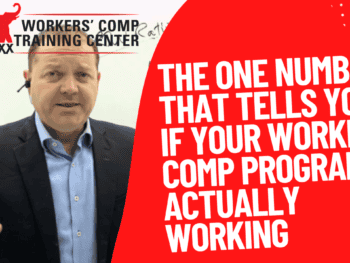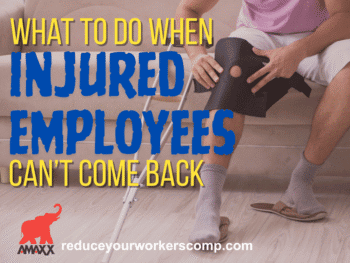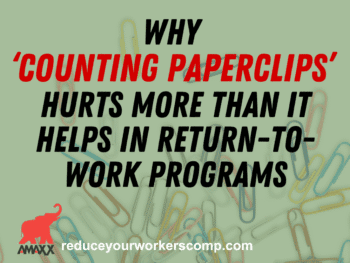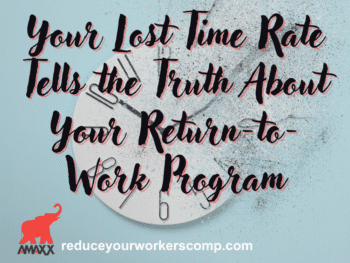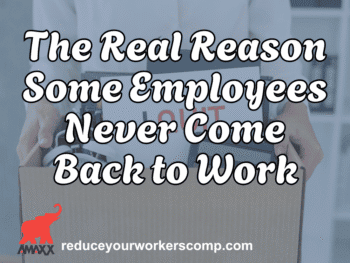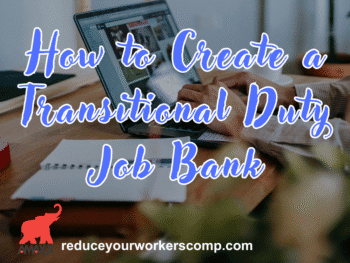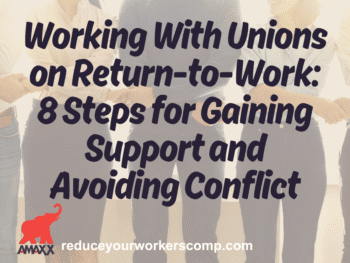
Successful Implementation Comes From the Top
Like the success of most workers comp cost containment programs, implementation needs to come from the top of the organization. Here are some tips to make return to work a part of your culture.
Click Link to Access Free PDF Download
“13 Research Studies to Prove Value of Return-to-Work Program & Gain Stakeholder Buy-In”
- Talk about Return to Work in a positive way
The discussion should always focus on the benefits to the company, and the employee. Examples include: improving employee retention, keeping employees involved in workplace activities, maintaining employee’s full wage earning power, faster recovery, etc.
- Make Return to Work jobs a positive experience by finding productive tasks or jobs.
Don’t punish your employees by having your transitional duty jobs be punitive. Put some thought into your transitional duty job bank and create jobs that would be productive for the employee and the company.
- Communicate the cost of NOT implementing Return-to-Work.
Communicating the financial benefits to the employees and managers can really open people’s eyes. Use the Transitional Duty Cost Calculator at www.reduceyourworkerscomp.com as a reference.
- Make Return to Work a mandatory requirement of employment.
The kiss of death for a program is picking and choosing which employees participate. Unfair treatment will quickly spread throughout an organization.
- Hold Weekly Meetings to consistently have an open dialog with injured workers.
Weekly meetings give you the opportunity to discuss obstacles to return to work, assess the injury, and address any problems or concerns.
- Send Get Well Cards for colleagues that are injured.
People appreciate thoughtful remembrances and this will help alleviate the “us vs. them” mentality.
- Include Injured Workers in workplace activities while they are recovering.
Once an injured worker is out of work they can easily become alienated and lose social contacts, so continue to include them in workplace activities even if they are doing a partial schedule while they work toward full duty.
FREE DOWNLOAD: “13 Research Studies to Prove Value of Return-to-Work Program & Gain Stakeholder Buy-In”
These are just a few ways to make Return to Work a part of your culture. As the great Zig Ziglar said, “you don’t have to be great to start, but you do have to start to be great”.

Contact: mstack@reduceyourworkerscomp.com.
Workers’ Comp Roundup Blog: https://blog.reduceyourworkerscomp.com/
©2020 Amaxx LLC. All rights reserved under International Copyright Law.
Do not use this information without independent verification. All state laws vary. You should consult with your insurance broker, attorney, or qualified professional.

